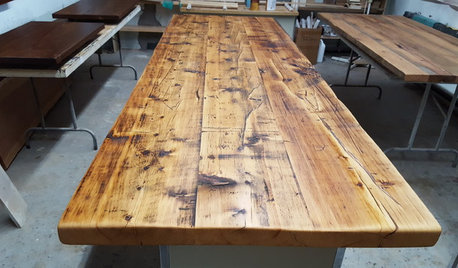How long does it take for neem to become effective?
manic_gardener_socal_10a
3 years ago
Featured Answer
Sort by:Oldest
Comments (15)
gardengal48 (PNW Z8/9)
3 years agogetgoing100_7b_nj
3 years agoRelated Discussions
How long does it take seeds to become 'organic'?
Comments (5)It takes one season. Any non genetically modified crops grown on a USDA certified organic farm the seed would be certified organic. The rules are a certified organization must use organic certified seed if available. Not all varieties of seed are availble organnically, so non-organic seed can be used as long as the seed is not treated with any prohibited substance or process and not Genetically altered. The grower must provide records of the variety ,seed source,and places where attempts have been made to find organic seed for that variety. I know this because I am in the process of having my farm certified organic. I grow seed of varieties (Heirlooms)that are not certified organic. I grow them to get the seed certified organic.My greenhouses are also certified so all my vegetable starts are certified organic which is another requirement for a grower. All annual plants must come from a certified organic source and there is no exception for this rule. So if the grower wants to grow cherokee purple tomatoes he has to grow his own plants from organic seed or buy plants from a certified organic grower such as myself. If he wants to grow a variety that there is no organic source of plants for he can not buy uncertified plants but he can grow his own plants from seed but the seed must be certified and if there is no source for certified seed of that variety then he can use seed that is not chemically treated or processed and the grower must have this approved by the certifying agent. This only applies to annual crops for perrenial crops such as apples asparagus etc the plants must be from a certified organization if the variety is not availble organically then just as with the seed the grower can buy unorganic plants that are not chemically treated or genetically modified and these plants have to be grown organically on a certified organic farm for one complete season before they are considered organic. Have I completly confused you now? Rodger...See MoreHow long does it take to root a redtwig dogwood
Comments (3)Hardwood cuttings grow best in coarse sand with intermittent water. Of course, this is outside and well past the time of freezing-pipe weather! If you know a hydroponic grower, ask to use his "cloner". A cloner will put roots on your stick in probably three or four weeks. I'm guessing on the time element, since I only clone tomatoes, which will develop a root ball the size of a golf ball in under two weeks! I grow tomatoes and strawberries hydroponically, but follow several forums....See MoreHow long does it usually take neem seeds to germinate?
Comments (3)Sorry, but you can forget them now. Neem is very short viable. After about 4 weeks, they are done. I tried seeds from 3 different suppliers and they were all not fresh enough. Bought some seedling last year and I have a 6 f tree and some smaller ones now....See MoreHow long does it take Metacam (meloxicam) to work?
Comments (5)I found this on a website: Maximum effect is seen approximately 8 hours after administration. When beginning a trial course of meloxicam, a response may take 3 or 4 days to show. If no response has been seen in 10 days, meloxicam has failed and a different pain medication should be tried. If one NSAID fails, another may well work. I hope he gets relief soon....See Moregardengal48 (PNW Z8/9)
3 years agogardengal48 (PNW Z8/9)
3 years agoUser
3 years agomanic_gardener_socal_10a
3 years agolast modified: 3 years agoUser
3 years agogetgoing100_7b_nj
3 years agoUser
3 years agomanic_gardener_socal_10a
3 years agolast modified: 3 years agoHighColdDesert
3 years agogetgoing100_7b_nj
3 years agolast modified: 3 years ago
Related Stories

INSIDE HOUZZHow Much Does a Remodel Cost, and How Long Does It Take?
The 2016 Houzz & Home survey asked 120,000 Houzzers about their renovation projects. Here’s what they said
Full Story
MOST POPULARWhen Does a House Become a Home?
Getting settled can take more than arranging all your stuff. Discover how to make a real connection with where you live
Full Story
DECORATING GUIDESThe Fifth Wall: Creative Ceilings Take Rooms to New Heights
A plain white ceiling isn’t always the best choice for a room. Consider these options for soothing to stunning effects
Full Story
KITCHEN COUNTERTOPSSee How Reclaimed Wood Beams Become a Stunning Kitchen Countertop
These woodworkers take a batch of rough wood boards and turn them into a remarkable showpiece in 5 weeks
Full Story
LIVING ROOMS15 Decorating Moves to Take Your Living Room to the Next Level
These tricks with furniture, lighting, color and accessories go a long way toward making a space fashionable and comfortable
Full Story
REMODELING GUIDESBathroom Workbook: How Much Does a Bathroom Remodel Cost?
Learn what features to expect for $3,000 to $100,000-plus, to help you plan your bathroom remodel
Full Story
COLORTake a Tour of Popular Colors Through the Decades
Journey back in time to see how culture and the economy have affected the colors of our homes
Full Story
DECLUTTERING8 Times in Your Life to Take Advantage of a Major Declutter
A new house, job or baby — these and other turning points offer a chance to discard stuff you don’t need or love
Full Story
BEDROOMSTake Your Headboard to New Lengths
If you want to create a bold, dramatic statement for your bed, consider an extra-wide headboard
Full Story
GARDENING AND LANDSCAPINGShade Sails: Outdoor Rooms Take Wing
Futuristic looking yet a terrific complement to both traditional and modern landscapes, shade sails lend a sculptural quality to patios
Full Story



getgoing100_7b_nj